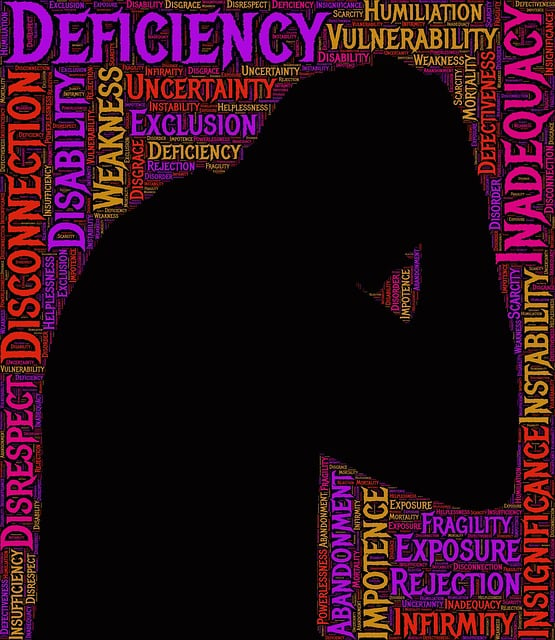Denver American Sign Language (ASL) Therapy revolutionizes mental healthcare by addressing the unique communication needs of deaf and hard-of-hearing individuals, making it more accessible and inclusive. Through comprehensive evaluations using DSM-5 criteria, they offer personalized care plans blending therapeutic approaches like Empathy Building and Stress Management Workshops. Early intervention prevents symptom escalation and long-term consequences, empowering individuals with coping strategies while reducing stigma. The Mental Wellness Podcast Series educates listeners on various topics, fostering a supportive community that encourages open discussion about mental health.
Mental illness diagnosis and treatment navigation can be complex, but assistance is available. This article guides you through understanding mental health diagnoses, exploring the unique role of Denver American Sign Language (ASL) therapy in accessible diagnosis, navigating treatment options, and discussing early intervention’s challenges and benefits. We also delve into long-term strategies for continuous wellness. Discover personalized care plans tailored to your needs, offering a roadmap to better mental health.
- Understanding Mental Health Diagnoses: Demystifying the Process
- The Role of Denver ASL Therapy in Accessible Diagnosis
- Navigating Treatment Options: Personalized Care Plans
- Challenges and Benefits of Early Intervention
- Supporting Continuous Wellness: Long-term Strategies
Understanding Mental Health Diagnoses: Demystifying the Process

Understanding Mental Health Diagnoses: Demystifying the Process
Navigating mental illness is a complex journey, often beginning with a diagnosis – but what does that actually mean? In the context of Denver American Sign Language Therapy, for instance, it’s crucial to demystify this process. A mental health diagnosis isn’t just a label; it’s a comprehensive evaluation by qualified professionals using standardized tools and criteria from diagnostic manuals like the DSM-5. This involves detailed interviews, reviews of medical history, and sometimes, specialized tests to accurately identify specific conditions, such as depression, anxiety disorders, or schizophrenia.
The process is designed to be collaborative, involving both the individual seeking help and their support system. Effective communication strategies, often facilitated by Denver ASL Therapy, play a vital role in this. By understanding the diagnosis, individuals can begin to address symptoms more effectively, whether it’s managing anxiety relief, preventing burnout, or pursuing tailored treatment plans that meet their unique needs. This transparency is crucial for fostering hope and empowering individuals on their path to mental wellness.
The Role of Denver ASL Therapy in Accessible Diagnosis

Denver American Sign Language (ASL) Therapy plays a pivotal role in making mental health services more accessible to the deaf and hard-of-hearing community. With effective communication as its foundation, this specialized therapy ensures that individuals who rely on sign language for expression can navigate the often complex process of seeking diagnosis and treatment. By employing ASL therapists, healthcare professionals can bridge the gap between patients and mental health care, fostering an environment where emotional struggles and needs are openly discussed.
This therapeutic approach goes beyond simple translation; it empowers individuals to build confidence in sharing their experiences and symptoms. Through Denver ASL Therapy, patients can actively participate in mood management strategies tailored to their unique communication needs, enhancing their overall mental health awareness and well-being. By embracing this inclusive practice, the community takes a significant step towards ensuring that no one is left behind in accessing the support they need for their mental health journey.
Navigating Treatment Options: Personalized Care Plans

Navigating treatment options is a crucial step for anyone receiving a mental illness diagnosis. Personalized care plans are essential in ensuring that individuals receive tailored support that addresses their unique needs and preferences. At Denver American Sign Language Therapy, we understand that every person’s journey with mental health is different. That’s why our team of dedicated professionals works closely with clients to create customized treatment strategies, incorporating various therapeutic approaches such as Empathy Building Strategies and Stress Management Workshops Organization.
By integrating these personalized care plans, we aim to foster a supportive environment where individuals can thrive. Our Mental Wellness Podcast Series Production also plays a vital role in this process by providing accessible resources and sharing stories of resilience, further empowering clients to take charge of their mental wellness.
Challenges and Benefits of Early Intervention

Early intervention for mental illness is a game-changer, offering numerous benefits that can significantly impact an individual’s long-term mental wellness. One of the key advantages is preventing the escalation of symptoms, which is particularly crucial in cases of conditions like depression or anxiety disorders. By addressing these issues early on, individuals can avoid the more severe consequences associated with later stages of illness, such as increased disability, social isolation, and even suicidal ideation. For instance, a Denver American Sign Language (ASL) therapy program focusing on mental health can provide deaf and hard-of-hearing individuals with tailored support, ensuring they receive effective treatment alongside their language needs.
Additionally, early intervention allows for the development of essential coping strategies and skills through guidance like mental wellness journaling exercises and burnout prevention techniques. Public awareness campaigns play a vital role in educating people about these early signs, encouraging them to seek help without stigma. This proactive approach not only benefits the individual but also fosters a supportive community where mental illness is openly discussed, promoting better access to appropriate treatment and care.
Supporting Continuous Wellness: Long-term Strategies

Navigating a mental illness diagnosis can be a complex and overwhelming process. However, with continuous support and well-structured strategies, individuals can achieve long-term wellness. Denver American Sign Language Therapy (DALST) offers unique assistance in this journey by providing specialized communication tools that facilitate emotional healing processes. Through their comprehensive approach, DALST helps patients improve mood management skills, enabling them to better understand and cope with their conditions.
One of the key strategies involves integrating DALST into ongoing therapy sessions and treatment plans. This includes utilizing American Sign Language (ASL) as a therapeutic tool for non-verbal communication, which can be immensely beneficial for individuals experiencing emotional distress or facing language barriers. Additionally, the production of the Mental Wellness Podcast Series can educate listeners about various mental health topics, promote self-care practices, and foster a supportive community, ultimately contributing to improved mental wellness.
Mental illness diagnosis and treatment can be complex, but with the right navigation assistance, individuals can find their path to wellness. By demystifying the diagnostic process and highlighting innovative approaches like Denver ASL Therapy for accessible diagnosis, we’ve seen the power of personalized care plans and early intervention. These strategies not only enhance continuous wellness but also empower individuals to take control of their mental health. The journey may have its challenges, but with support and the right resources, it’s a path worth embarking on.














